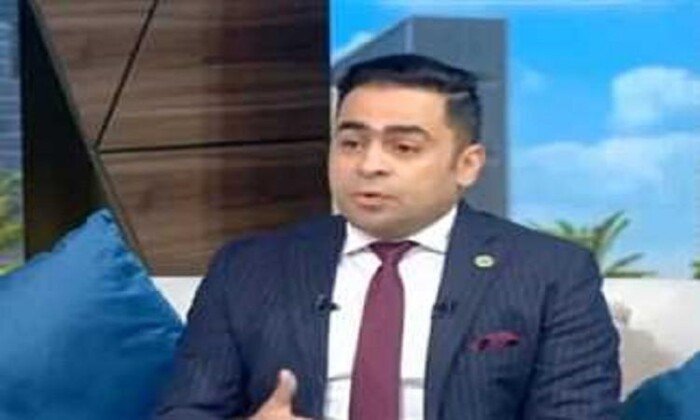Dr. Mohamed Hamza Al-Husseini, an economic expert and advisor to the Egyptian United Nations Association, emphasized the significance of the second Global Summit on Social Development hosted in Doha, Qatar. The event, attended by a high-level Egyptian delegation led by Prime Minister Dr. Mostafa Madbouly, brings together around 8,000 global leaders and representatives from international institutions amid a complex global landscape marked by rising economic and geopolitical challenges.
Al-Husseini, speaking during an interview with Nile News Channel, noted that this summit takes place 30 years after the first such gathering in Copenhagen in 1995, but under far more intricate global conditions including ongoing conflicts in regions like Gaza, Russia, and Ukraine, as well as increasing poverty. He highlighted Egypt’s strength in social protection programs, positioning the country as a benchmark for others due to the success of its developmental and social initiatives over the past decade. These include the comprehensive rural development initiative “Decent Life,” the cash assistance program “Takaful and Karama,” and the public health campaign “100 Million Healthy Lives” aimed at eradicating epidemics. Additionally, Egypt has invested heavily in infrastructure, youth empowerment, and job creation through large-scale development projects.
He stressed that genuine social progress requires lasting peace, pointing to major regional challenges such as the reconstruction of Gaza—a priority emphasized by Qatar’s Emir Sheikh Tamim bin Hamad—and instability in Sudan. Despite Egypt’s advancements in infrastructure and other sectors, Al-Husseini urged greater focus on education over the next four years leading up to 2030, advocating for more school buildings and teachers, as well as curriculum reforms to deepen digital transformation. This shift would move away from traditional teaching methods toward digital solutions and conceptual understanding. He also called for expanded healthcare capacity, including more hospitals and health units, to keep pace with rapid population growth, noting that upgrading existing facilities alone is insufficient.
— news from ããã
— News Original —
ããã
أكد الدكتور محمد حمزة الحسيني، الخبير الاقتصادي، ومستشار الجمعية المصرية للأمم المتحدة، على الأهمية البالغة للقمة العالمية الثانية للتنمية الاجتماعية التي تستضيفها العاصمة القطرية الدوحة، والتي تشارك فيها مصر بوفد رفيع المستوى برئاسة الدكتور مصطفى مدبولي، رئيس مجلس الوزراء، وبمشاركة نحو 8000 من قادة الدول والمؤسسات الدولية، في توقيت عالمي دقيق يتسم بتزايد التحديات الاقتصادية والجيوسياسية.
وقال الحسيني، خلال لقائه عبر قناة «النيل للأخبار»، إن هذه القمة تُعقد بعد 30 عامًا من المؤتمر الأول في كوبنهاجن عام 1995، في ظل ظروف عالمية أكثر تعقيدًا تشمل الصراعات مثل غزة وروسيا وأوكرانيا والفقر المتزايد، موضحًا أن نقاط القوة المصرية تتمثل في برامج الحماية الاجتماعية، حيث تُقدم مصر نفسها كنموذج يحتذى به بفضل نجاح برامجها التنموية والاجتماعية خلال السنوات العشر الماضية، مثل “حياة كريمة” للتنمية الريفية الشاملة، و”تكافل وكرامة” للحماية النقدية، و “100 مليون صحة” للقضاء على الأوبئة، فضلاً عن الاستثمار في البنية التحتية والشباب وتوفير فرص عمل عبر مشروعات تنموية ضخمة.
وشدد على أن التنمية الاجتماعية الحقيقية تستلزم وجود سلام دائم، مؤكدًا أن التحديات الكبرى التي تواجه المنطقة حاليًا هي إعادة إعمار غزة وهو ما أكده أمير قطر الشيخ تميم بن حمد، والاضطرابات في السودان، مشيرًا إلى أن مصر، رغم تقدمها في البنية التحتية وقطاعات أخرى، تحتاج لتركيز أكبر خلال السنوات الأربع القادمة حتى 2030 على القطاع التعليمي عبر زيادة عدد الأبنية التعليمية والمدرسين، وتطوير المناهج لتعميق التحول الرقمي، بما يُبعد التعليم عن النمط التقليدي ويجعله يعتمد على الحلول الرقمية والفهم، فضلا عن الرعاية الصحية وزيادة عدد المستشفيات والوحدات الصحية لمواكبة الزيادة السكانية الكبيرة، حيث لا تكفي رفع كفاءة المنشآت الحالية وحدها.
